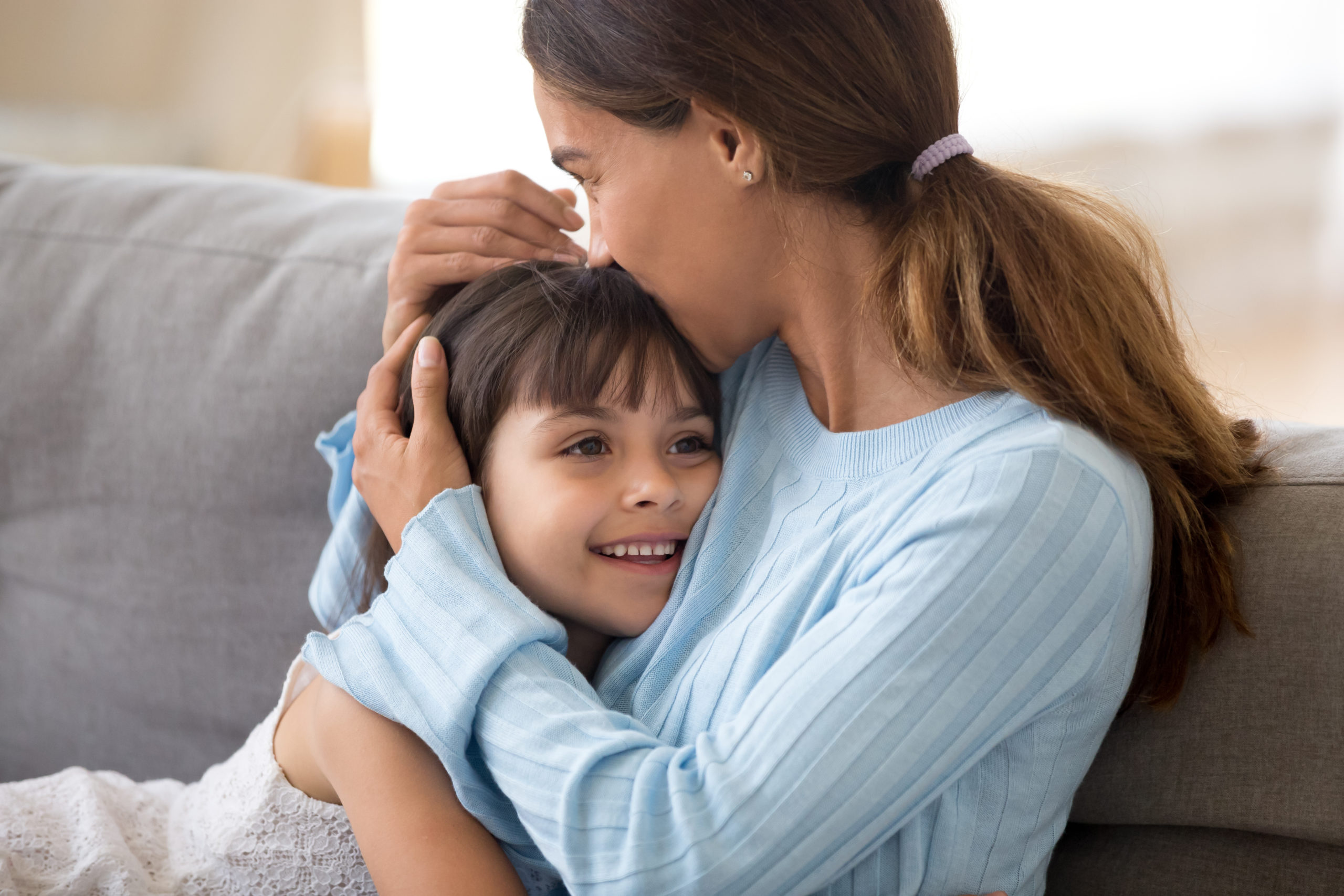Top Tips for Parenting Successfully With Anxiety
To parent successfully with anxiety, establish clear boundaries to balance your mental health and parenting duties. Prioritize your well-being by setting consistent, compassionate limits. Practice self-care tailored to your needs to enhance parenting effectiveness. Seek support through therapy or online groups for coping strategies. Identify and manage stress triggers with relaxation techniques. Maintain open communication with your children to strengthen relationships. Embrace imperfection and cultivate mindfulness to navigate challenges. Remember, incorporating these tips can help you effectively parent while managing anxiety.
Key Takeaways
- Establish clear boundaries for mental well-being.
- Practice self-care tailored to individual needs.
- Seek therapy or online support for coping strategies.
- Identify and manage stress triggers effectively.
- Prioritize open, supportive communication with your child.
Setting Boundaries

Establishing clear boundaries is essential when parenting with anxiety, as it can help create a sense of structure and predictability for both you and your children. Healthy boundaries are vital in maintaining a balance between taking care of your mental health needs and fulfilling your parenting responsibilities. It’s okay to set limits on what you can handle and communicate them openly with your children.
Remember, creating boundaries isn’t about being distant but about prioritizing your well-being so you can be the best parent you can be.
When setting boundaries, it’s important to be consistent and firm while also being understanding and compassionate. This balance can be challenging, especially when anxiety is present, but by clearly defining what’s acceptable and what’s not, you can reduce stress and improve your overall mental well-being. Your children will also benefit from knowing what to expect and how to respect your needs.
Practicing Self-Care
Hey there, it’s essential to prioritize your well-being as a parent managing anxiety. Setting boundaries for yourself is key to maintaining a healthy balance between caregiving and self-care.
Prioritizing Personal Well-Being
Looking after yourself is vital when parenting with anxiety, as prioritizing personal well-being not only benefits you but also positively impacts your ability to parent effectively.
Engaging in mindful parenting practices can help you stay present and manage anxious thoughts. Implementing self-care routines tailored to your needs is essential.
Remember, self-care isn’t selfish; it’s a necessity that allows you to recharge and be at your best for your children.
Incorporating mindfulness techniques, such as deep breathing or grounding exercises, can help you navigate challenging moments without being overwhelmed by anxiety.
Establishing self-care rituals, whether it’s taking a warm bath, reading a book, or going for a walk, can provide much-needed moments of relaxation and rejuvenation.
Prioritizing personal well-being isn’t just beneficial for you—it also sets a positive example for your children on the importance of self-care and mental health.
Setting Boundaries for Self
Establishing boundaries for yourself is essential when practicing self-care as a parent managing anxiety. As you navigate the challenges of parenting while dealing with anxiety, it’s important to prioritize self-reflection and self-awareness.
Setting boundaries allows you to protect your mental and emotional well-being, ultimately enabling you to be a more present and effective parent.
Begin by reflecting on your needs and limitations. Take the time to understand what triggers your anxiety and recognize when you need to step back and prioritize self-care.
Communicate your boundaries clearly with your family, so they understand and respect your needs. Remember, it’s okay to say no to additional responsibilities or commitments if they overwhelm you.
Self-awareness plays a significant role in setting healthy boundaries. Listen to your body and mind, and learn to recognize the signs of burnout or excessive stress.
Seeking Support

When dealing with anxiety while parenting, remember that seeking support isn’t a sign of weakness but a courageous step towards better mental health.
Therapy can provide you with coping mechanisms and strategies to navigate your anxiety while fulfilling your parenting duties.
Online support groups can connect you with others who understand your struggles and offer valuable advice and encouragement.
Therapy for Anxiety
To effectively manage your anxiety as a parent, consider seeking therapy for support and guidance. Therapy can provide you with a safe space to explore your feelings, learn coping strategies, and develop mindfulness exercises to help you navigate the challenges of parenting with anxiety.
A therapist can offer valuable insights into understanding your anxiety triggers and provide you with tools to manage them effectively.
Mindfulness exercises, such as deep breathing or meditation, can help you stay present in the moment and reduce feelings of overwhelm. These practices can be integrated into your daily routine to promote a sense of calm and clarity amidst the chaos of parenting.
Coping strategies learned in therapy can empower you to handle stressful situations more effectively and improve your overall well-being. Techniques like cognitive-behavioral therapy (CBT) can help you reframe negative thought patterns and develop healthier ways of responding to anxiety-inducing situations.
Online Support Groups
Consider joining online support groups as a way to connect with others who understand what it’s like to parent with anxiety. Virtual meetups through online support groups can provide a sense of community and understanding that’s invaluable when dealing with the challenges of parenting with anxiety.
These groups offer a safe space to share your experiences, seek advice, and receive support from individuals who are facing similar struggles.
In addition to the emotional support, online support groups also offer access to a wealth of online resources. These resources may include articles, webinars, and recommended readings that can help you better understand anxiety, learn coping strategies, and discover parenting techniques tailored to your situation.
Managing Stress Triggers

Identifying and addressing your specific stress triggers is key to effectively managing anxiety while parenting. Stress management plays an important role in maintaining your well-being. Begin by recognizing what situations or thoughts tend to trigger your anxiety. Once you’ve identified these triggers, develop coping strategies to navigate through them.
Incorporating relaxation techniques into your daily routine can greatly reduce stress levels. Whether it’s deep breathing exercises, meditation, or yoga, finding what works best for you is essential.
Taking time for yourself to unwind and destress isn’t selfish but necessary for your mental health.
Prioritizing Communication
Start by actively listening to your child’s thoughts and feelings to create an open and supportive environment for effective communication. Essential communication is crucial for building a strong parent-child relationship, especially when dealing with anxiety. Encouraging an open dialogue where your child feels safe expressing their emotions can help alleviate any misunderstandings or tensions that may arise.
When prioritizing communication, remember that it’s not just about talking but also about truly listening. Pay attention to both verbal and nonverbal cues your child may be giving, as these can provide valuable insights into their state of mind. Responding with empathy and understanding can foster trust and strengthen your bond.
Create regular opportunities for conversations, whether it’s during meals, car rides, or before bedtime. Establishing these moments for connection can make your child feel valued and supported.
Embracing Imperfection
Embrace the beauty of imperfection as a parent managing anxiety, understanding that it’s okay to not have all the answers or handle every situation perfectly. Parenting with anxiety can feel overwhelming, but remember that accepting mistakes is an essential part of growth.
It’s normal to make errors or feel like you could have handled a situation better. Instead of being too hard on yourself, try shifting towards a growth mindset. View each mistake or imperfect moment as an opportunity to learn and grow, both for yourself and your children.
Cultivating Mindfulness

As you navigate parenting with anxiety, consider the practice of cultivating mindfulness as a powerful tool to help you manage stress and stay present in the moment. Mindfulness involves being fully aware of your thoughts, feelings, and surroundings without judgment. By incorporating mindfulness into your daily routine, you can better cope with the challenges that come with parenting.
One effective way to cultivate mindfulness is through meditation techniques. Taking a few minutes each day to sit quietly, focus on your breath, and let go of racing thoughts can greatly reduce anxiety and improve your overall well-being. Mindfulness exercises, such as body scans or guided imagery, can also help ground you in the present moment and alleviate feelings of overwhelm.
Frequently Asked Questions
How Can I Explain My Anxiety to My Children?
You can explain your anxiety to your children by being honest and open. Share how you manage emotions and build trust with them. Help them understand it’s okay to feel anxious sometimes and that you’re there for them.
Is It Okay to Take a Break From Parenting Duties?
Yes, it’s okay to take a break from parenting duties. Self-care balance is essential for mental health. Breaks can help alleviate anxiety and prevent burnout. Don’t feel guilty for prioritizing your well-being – it benefits both you and your children.
What if My Support System Doesn’t Understand My Anxiety?
If your support system doesn’t understand your anxiety, consider seeking therapy for yourself. Educate partners and friends about your struggles. Prioritize self-care to manage anxiety better and communicate openly about your needs for support.
How Do I Cope When Unexpected Stress Triggers Arise?
When unexpected stress triggers arise, remember to breathe deeply and ground yourself in the present moment. Practice coping strategies like mindfulness or journaling. Prioritize self-care and consider seeking help through therapy options for extra support.
Can I Maintain Open Communication With My Children About My Anxiety?
You can maintain open communication with your children about your anxiety. By managing boundaries and building trust through honest conversations, you create a safe space for them to understand and support you during challenging times.
Conclusion
Remember, parenting with anxiety is a journey, not a destination. By setting boundaries, practicing self-care, seeking support, managing stress triggers, prioritizing communication, embracing imperfection, and cultivating mindfulness, you’re taking important steps towards parenting successfully.
Be kind to yourself, acknowledge your efforts, and remember that you aren’t alone in this. Keep going, keep learning, and keep growing as a parent and as a person.
You’ve got this.

Hey there! 👋 I’m a proud mom and passionate writer, sharing my parenting journey. 📝 Join me as I navigate the ups and downs of motherhood, offering tips, advice, and a sprinkle of humor along the way. 🌟







